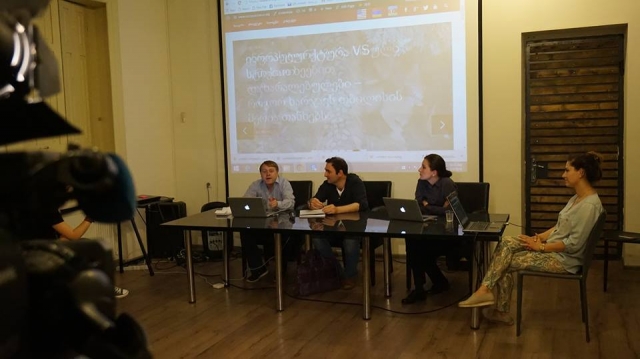New Leak Links 85 Georgians to Offshore Companies
TBILISI - The International Consortium of Investigative Journalists (ICIJ) on Monday launched a searchable database aimed at stripping away the secrecy of more than 214,000 offshore companies used to hide wealth, evade taxes and commit fraud by many of the world’s richest and most powerful public figures.
The database revealed the names of 85 Georgian citizens, former politicians and businessmen who may have been involved in illegal financial activities. The list includes the names of former Defense Minister and United National Movement party official David Kezerashvili, former Economy minister and businessman Ivan Chkhartishvili, whose name is connected to several corruption cases, UNM Parliament Member Koba Nakopia, who also produced a widely-panned film about the 2008 Russian-Georgian War called ‘5 Days of War’.
The ICIJ released its first batch of files – known as the Panama Papers – in April. Georgian billionaire oligarch and former Prime Minister Bidzina Ivanishvili was listed alongside Russian President Vladimir Putin, Ukrainian President Petro Poroshenko, Azerbaijan’s Ilham Aliyev and some of the world’s most notorious dictators as having used a Panamanian offshore to hide vast sums of wealth.
Related coverage: Ivanishvili’s Vast Offshore Holdings Exposed in Panama Papers Leak
Files that belonged to the firm in question, Mossack Fonseca, were leaked by an anonymous source known as "John Doe". The company has steadfastly denied having taken part in any illegal activities.
Dozens of people gathered in Tbilisi on Monday night, demanding more details about the offshore leaks. Organized Crime and Corruption Reporting (OCCR) head David Bloss and Georgian journalist Nino Bakradze presented a new list of names that included Georgians connected to various offshore entities.
Bloss was quick to emphasize that the database does not include anything that could compromise the privacy of individuals. Many of the Georgians on the list are shareholders of companies registered in offshore zones while others are the owners' representatives.
"It is not a problem or a crime that somebody owns a company located in an offshore area. However, as a rule, they own companies to hide taxes or to carry out financial activities out of the authorities’ control,” said Bakradze.
Bakradze said she was surpized to find Georgian companies registered in offshores dating back to the early 1990s when the country suffered through complete economic collapse and several separatist wars.
The Panama Papers is the largest release of information about offshore companies in history.
The searchable database allows users to explore the network of companies and people that used – and sometimes abused – the secrecy of offshore locales with the help of Mossack Fonseca and other intermediaries.
The leaked data covers nearly 40 years, from 1977 through the end of 2015.
By Tamar Svanidze
Edited by Nicholas Waller
Photo: Frontline Georgia












